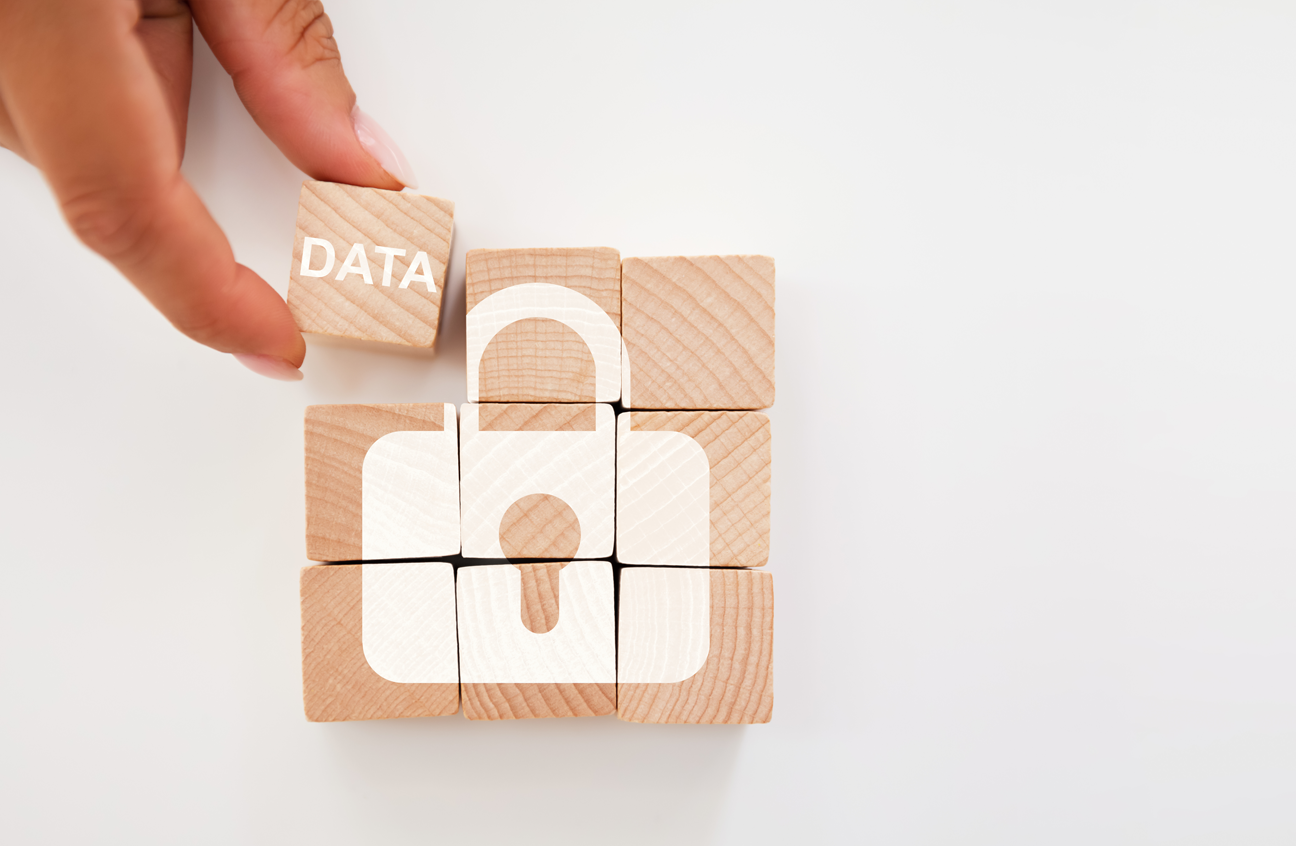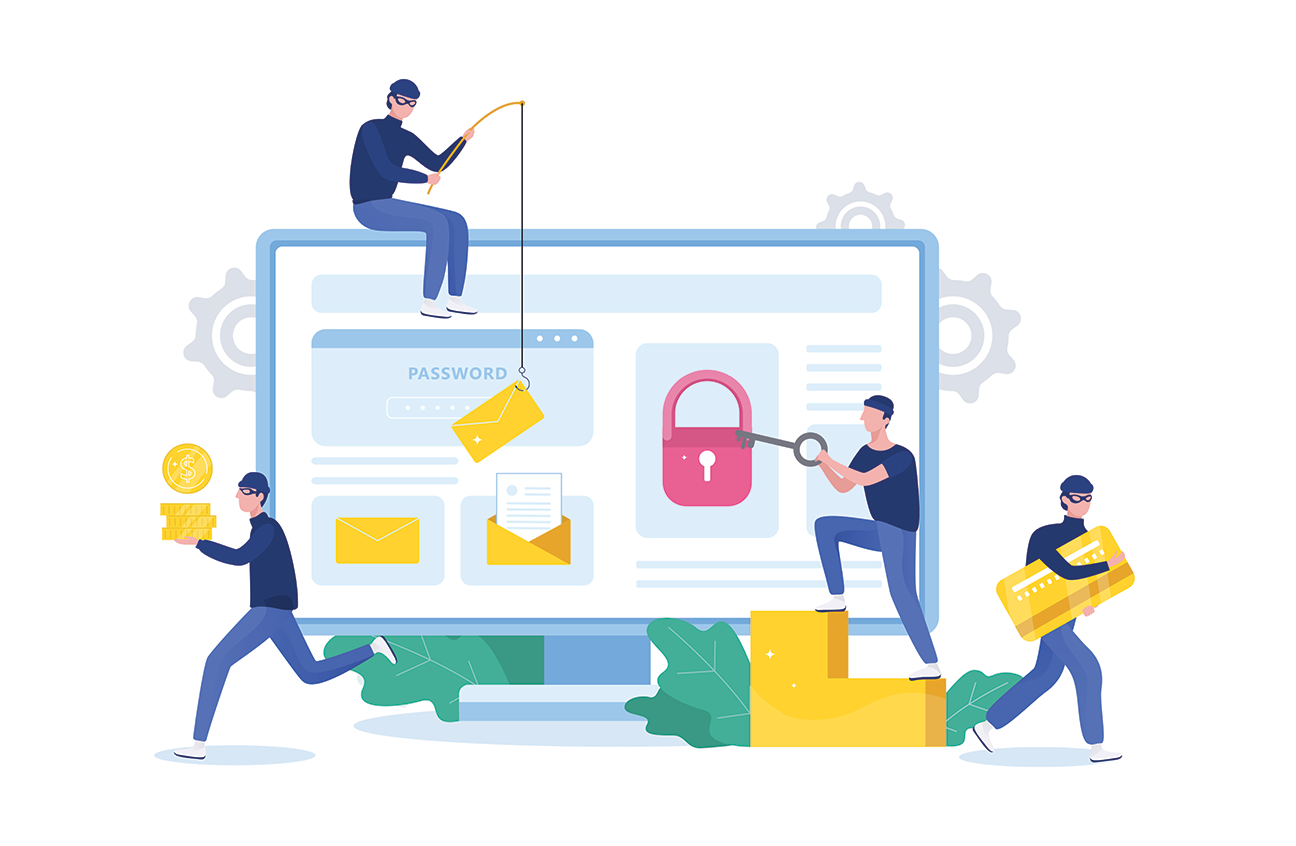Accept
Why Your Digital Privacy Matters

Privacy, Digital Privacy... An Overview
Privacy: the quality or state of being apart from company or observation, the freedom from unauthorized intrusion (merriam-webster, 2020). Our digital privacy follows this same definition, but is centered around the data that we both knowingly and unknowingly generate and share. Our increasing utilization of technology in all aspects of our lives is constantly providing more access to our data. We hear a lot about data in the news, but what is your data? Where does your data come from? And most importantly, why should you care about your data and digital privacy?
What Is My Data?
Data is an umbrella term that can mean different things depending on the context. In a technical sense, data is any digital information that is generated, processed, collected or stored by a computer system. Data today can take many forms: files, documents, photos, audio, video, information added to or generated from computer programs and algorithms, location data, voice, power usage and general usage information.
Where Does My Data Come From?
If you use modern technology, your data is coming from you, everywhere. No really, you're generating data every second of the day, whether you are actively using your device(s), internet or apps. You're even producing data while you sleep. Like it or not, you are a walking data producing machine. For this example, we will explore a fictitious average day as someone who moderately uses technology in the United States (pre-Covid). Also in this example, let's consider you also use social media apps on your phone, and you've allowed all their requested permissions (microphone, location, etc) without any further privacy restrictions.
- [6:00 am] Wake up:
- Your phone is creating and analyzing data about when you typically get up
- iPhone users, have you noticed suggestions from Siri of when you should set an alarm, or enable do not disturb mode?
- Your phone is creating and analyzing data about when you typically get up
- [6:30 am] Breakfast:
- Your phone knows how long it has taken you to get ready
- Do you listen to music, a podcast, the news?
- How long does it take you to eat?
- While eating, did you surf the internet (voice or text)? Perhaps you wanted to look up a new shirt or service you heard about. You may see later while an advertisement on your social apps for what you were searching for, or what was even mentioned in the background.
- [7:30 am] Commute:
- Your device has data about when you leave for work
- GPS
- Whether or not you are actively using GPS, your phone has generated data about your driving:
- Driving locations
- Driving durations
- Speed
- Traffic patterns
- Travel patterns
- What places you travel past, knowing which ads to serve you
- Whether or not you are actively using GPS, your phone has generated data about your driving:
- [8:00 am] Work:
- Your device knows
- When you get to work
- How long you're at work
- Your work/break patterns
- If connected to your company email, they can also log your activity, at all times
- What time you got to work
- Lunch duration
- What time you left work
- General location of where you go, even after work hours
- If you use a company owned phone, or computing device, assume every action, keystroke, website, application, video and audio data, when and how long you use the computer, the location of the device, are all being logged 24/7.
- If connected to your company email, they can also log your activity, at all times
- Lunch
- Do you leave the office to eat lunch?
- Where do you typically go?
- What types of food do you eat?
- Are you accompanied by others?
- Do you consume any music, podcasts at this time?
- Data can even be generated about how you consume your audio: internal speakers, wired or bluetooth headphones, external speaker, etc.
- Your device knows
- [5:00 pm] Post-work and commute home:
- Do you go straight home?
- Do you go to the gym, or other activity after?
- Do you grocery shop now?
- Happy hours or other entertainment at this time?
- How long does it take you to normally get home?
- Do you travel the same routes to and from work?
- Do you listen to the same music, podcasts, news as the morning?
- Same GPS items as above
- [6:00 pm] Dinner:
- Follows the same items as breakfast
- [7:00 pm] Evening:
- How do you spend your evening hours
- Do you go out?
- Watch television, music?
- Do you continue to work?
- Do you go to school in the evening?
- Who are you with?
- Who do you communicate with?
- What you talk about can be collected
- Applications are listening to what you say
- Applications are reading your emails for relevant keywords
- Some applications are capturing everything typed on your phone
- What you talk about can be collected
- Who are you with?
- Social media app by proximity and the network you're connected to, know who you are with, and how likely you are to know the people you're around. Even more so, you may get a recommendation for a new friend just by being physically close, of someone you don't even know.
- Do you online shop at this time?
- Social apps are capturing this data in multiple various way, virtually hidden unless you actively monitor it with special tools
- What are you searching for online?
- This is a major area of data
- Likes and preferences: food, clothing, sports, music, etc
- Health
- This is a major area of data
- [9:00 pm] Bed:
- What time do you go to bed?
- What are your technology patterns?
- Which apps are you using?
- Shopping at this time?
- How long are you in bed
- Do you sleep all night?
- Your health, and future health can be derived by your
- Sleeping patterns
- Online searches
- Voice keywords
- Location data
- Health
- Age
- Medications
- Biomarkers
- Heart rates
- Heart rhymics
- Other health metrics that can be derived from health data on your devices and wherever else it may be synced to.
- Do you charge your phone during this period?
- Which times are you not active on your phone; this can be a period of time for the device to process/update while not in heavy use
This is just a simple example of how much data the average person can generate on a given day. In reality, the true picture is even bigger. You are giving away more personal data than what is depicted above. With our increasing usage of technology, each new device, application, smart device we add to our lives, our digital footprint and the amount of data we're producing and giving away is getting exponentially larger each day.
The Importance Of Your Privacy Now
Digital Estate Planning with Final Security is about protecting you and your loved ones from cybercrime, ensuring your important files are found and protecting your legacy. Get your free account and online will today; no credit card required.
Sign Up
On the surface, you may perceive the importance of your privacy as nominal. It's easy to think of privacy as being some intangible nice-to-have. Often, when I first speak to someone on the topic of their privacy, the response that I get is that, "I don't have anything to hide". This could not be farther from the truth. As we learned in the timeline above, you're generating an impressive amount of data, day-in and day-out. Moreover, that data is being sent to multiple sources, most of which are hidden to you and all with different levels of security and policies with how they handle, process, analyze and monetize your data.
The following are some immediate risks you could face if your private information was to get into the wrong hands:
- Identity theft
- If your sensitive information gets into the hands of the wrong people, they could steal your identity.
- Job security/loss of job
- In today's cancel-culture world, even benign comments out of context can be problematic. If a private conversation were to be released, you could potentially lose your job.
- Reputation management
- Same as the item above. If a private conversation, out of context, were to be released, it could cause damage to you and your reputation, and could negatively impact your life in multiple ways.
- Relationships
- If private or sensitive information were to be released out of context, you could face issues in your relationships.
- Having to answer only to yourself
- If your private information were to get out and become public, you would most likely have to explain your actions, thoughts, and feelings.
- Ability to change and have a second chance
- If your private information became public, either with or without context, you could lose the ability to have a second chance.
Some points from the list above were inspired by Teachprivacy.com.
The Bigger Risk From Your Privacy Is In The Long-term
Your privacy, or the lack thereof, has the biggest implications when we look at it from a long-term perspective. The items we identified above are problems without a doubt, but what we're going to discuss here could have generational implications.
As we learned earlier, you are hemorrhaging data. Literally every aspect of your life, companies like Facebook, Google and others have been building complex profiles about you. They may even understand you, your preferences, likes, dislikes, habits and so on, better than you even understand yourself.
We are quickly heading toward the age of Artificial intelligence (AI). AI is capable of doing amazing things. Current examples range from Tesla's self-driving cars to your personal assistant on your phone (Siri, Alexa, Google Assistant). There is an important factor that makes AI work, and this is data. AI needs data, and lots of it, to learn and work properly. You, the data producing machine, are giving every possible preference, thought processes, health data, and more to an increasing number of companies and their partners.
As time goes on, AI will only become more prevalent, advanced and will be integrated into every aspect of life. You may still be thinking, "I don't have anything to hide"; let's change that. If not now, AI will soon be able to model your health, genetics (personal and familial) and combine them with your environmental factors and preferences. These models will be able to access risk and determine your potential life issues and provide information to companies and governments. Imagine if a company would be able to review your life profile when you're seeking employment and be able to discriminate against you because you would cost the company more money than someone else. Or if you were denied insurance, or any type of opportunity or coverage, based on your risk score.
It's important to note that in today's world there are protections in place such as Health Insurance Portability and Accountability Act (HIPAA) to protect your health records. Acts such as Genetic Information Nondiscrimination Act (GINA) are in place to protect us from being discriminated against based on our genetics. However, these protections will only apply when you give your data to companies through the proper channels. Many of the same classifications and determinations can be derived based on your (and your family's) web searches, health information, conversations, and a countless number of ways that are not protected, as we've discussed previously.
"We need to be proactive about our privacy, because technology will always advance faster than the government will be able to enact protections via laws and regulations."
- Christopher W Huziak
CEO & Founder of Final Security
The real and biggest issue of privacy is in the long term. While these issues may not affect you during your life, it is likely possible that not caring about your privacy now could impact your loved ones, children, their children and even more generations to come.
I don't think we're past the point of no return. We still have time to right the ship. Protecting our privacy will never be perfect, and will never be 100%. Privacy and what it will take to protect your privacy, will change and evolve over-time. As long as we use technology, we will need to be concerned about our privacy. We need to be proactive about our privacy, because technology will always advance faster than the government will be able to enact protections via laws and regulations.
Awareness is key to understanding everything in life. If you do not know about something and why it is important, why would you spend the mental energy to care about it.
Privacy is important, and it needs to matter to you. If not for you, for your loved ones and your future generations.
Definition of PRIVACY. (2020). From: https://www.merriam-webster.com/dictionary/privacy
10 Reasons Why Privacy Matters - TeachPrivacy. (2014). From: https://teachprivacy.com/10-reasons-privacy-matters/
Digital Estate Risk Assessment Calculator
According to AARP, it can take six months for financial institutions, credit-reporting bureaus and the Social Security Administration to receive, share or register death records. When you consider that timeframe and that cybercrime is now more profitable than the global illegal drug trade, your digital estate is the perfect target for criminals. We need to protect and organize our digital lives in preparation of our digital death.
How at Risk...
Is Your Digital Estate?
Get your free personalized digital estate planning report in just a few minutes.
Start Your Free Assessment
BANK-GRADE SECURITY
Your privacy, safety and security is our top priority and at the core of everything we do. Your data is encrypted and protected at every level. From typing on your computer, through the Internet and into our application and servers.
Learn more about how we secure your data.


